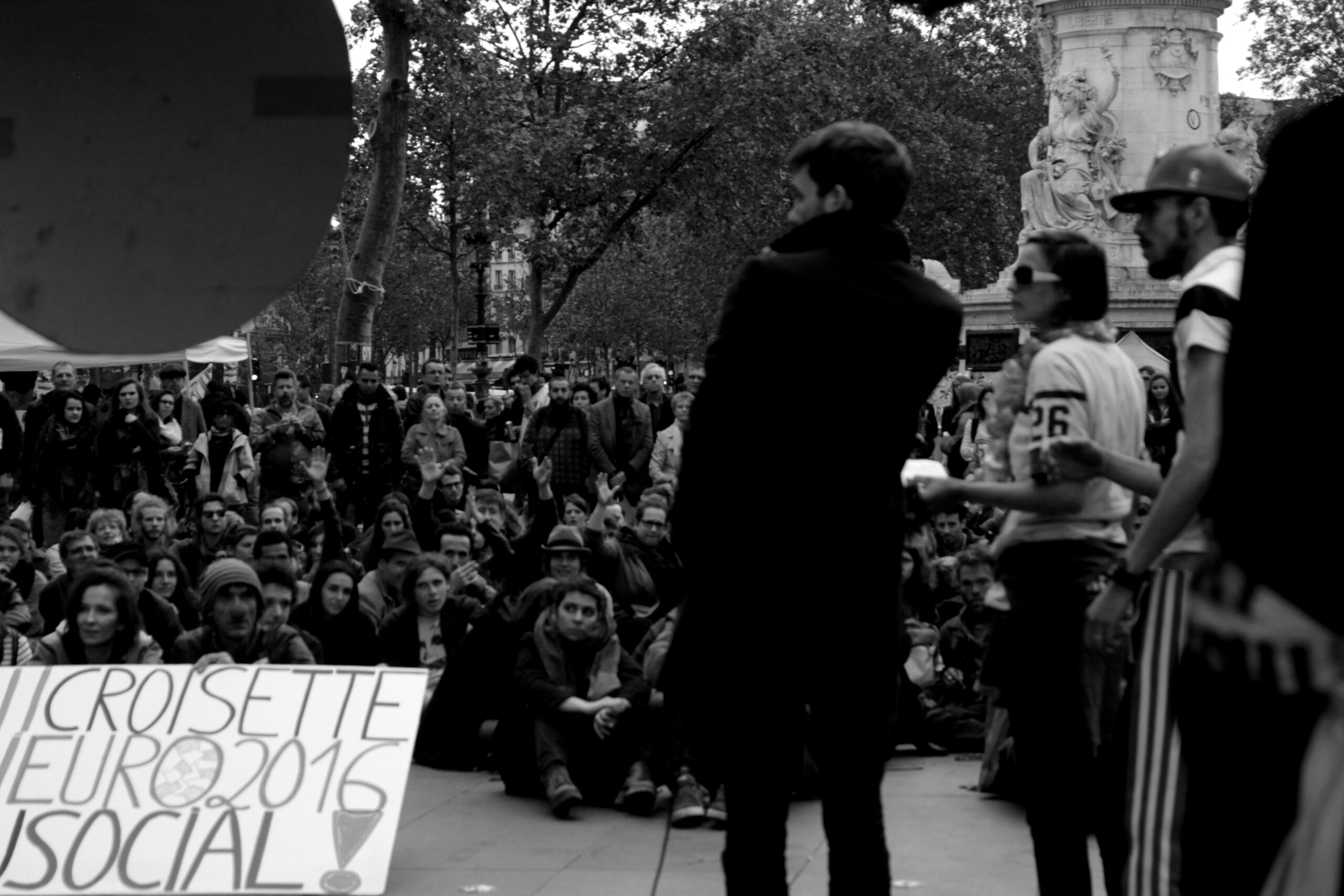New York Film Academy alumnus Janek Ambros, known for his work on “Valley of Bones,” “10,000 Saints,” and “Imminent Threat,” is working with Marin Scorsese’s long-time producing collaborator, Barbara De Fina.
Ambros’ film, “May 15th in Paris,” retells the story of a large protest on the streets of Paris on May 15, 1848. Ambros uses a narrator to recount this historic date and juxtaposes that story with images of current controversial populist political wins across the globe.
Ambrose did an email interview with NYFA Correspondent Joelle Smith to talk about his experience making this film.
NYFA: How did you team up with Hollywood legend Barbara De Fina?
Ambros: Since I was a kid, Barbara De Fina and Irwin Winkler were two people I greatly admired. As a director, I dreamed I would one day have as supportive and creative producers as Martin Scorsese did. However, it wasn’t really my intention to have her produce my films. I originally wanted to see if she had any projects she needed funding for, because I dabble in film finance.
But when I came back from Paris and showed her the footage, she had a lot of great notes on the narration, editing, and overall pacing. We ended up collaborating on it and in the end, she decided to come on board as a producer.
NYFA: What was it like working with such a giant in the producing field?
Ambros: Someone who has produced for my favorite director of all time is now producing my films. It was obviously a little surreal. It truly is an honor to work with her. But when it’s all said and done, she simply made the film better and that is always the goal. It’s extremely important to listen to others who have experience and expertise greater than your own. You don’t want to be too rigid-minded in your thinking. Having a good creative producer on board is incredibly valuable.
NYFA: Can you expand upon why you wanted to compare the incidences of 1848 with the recent U.S. presidential election and Brexit?
Ambros: I’m really into history. It’s really important to not just know your history, but also understand how it applies today. No situation is entirely unique. In the 1840s, those in power blatantly ignored the powerless. To me, their situation is similar to how today’s “corporate Democrats” failed a lot of the lower and middle class. People finally had enough. However, when they went to the ballot, citizens went in the wrong direction, similar to the French in the 1840s when they voted for Napoleon Bonaparte.
NYFA: How did all of these events affect you as a creator?
Ambros: Given Trump, the overall rejection of globalism by many in Western countries, and the rise of nationalism, my approach to how I create content has changed. I’ve always been into politics. I’ve done shorts on the military industrial complex, the bank bailouts, authoritarianism, etc. I’m just sticking to my original game plan.
I see a lot of other writers pull an audible to make their work reflect what’s happening with Trump and that can be great. But, I’d be cautious against changing your entire approach. Things are always going to evolve, especially living in a world with a never-ending news cycle. So, if you keep trying to make everything “current,” it can be challenging.
I do think this political climate will spark a “New Wave” of more politically challenging films, which is great. Our company is trying to focus on filmmakers who are making movies that strive for greatness. We want to be like Zoetrope, who tackled challenging cinema in the ‘60s and ‘70s.
NYFA: What did you learn at NYFA that helped you make this film?
Ambros: The most important element I learned from NYFA to help make this film was to just go out and make it. So many other film schools focus on academia, where NYFA really taught me how to go out and make a film and learn from doing. Although my ultimate aspirations are writing and directing, I went to NYFA for producing. I’m glad I did. I no longer have an excuse to not make a movie.
NYFA: What did you learn while making this film? Would you change anything about your process?
Ambros: I learned a lot about taking in surroundings when making a film. My previous doc was a lot of talking heads and stock footage with mostly stylized editing. This one I couldn’t have any stock footage and didn’t want to do any interviews; I wanted to approach it more as an experimental film with each segment having its own style. So, I was forced to really push myself to look for interesting imagery and create a solid composition and shot design.
NYFA: What projects do you have coming up next?
Ambros: My next film is “Arlington West.” I’ll, once again, be working with Barbara De Fina. The movie is about two Iraq War veterans who spend the night debating war and peace along the Santa Monica pier after attending the Arlington West memorial service.
We have other projects in development as well that include an adaptation of the widely acclaimed ”Nixon’s Nixon,” penned by Russell Lees, about the night before Nixon gets impeached; an adaption of the timeless play “An Enemy of the People,” by Henrik Ibsen; and a VR sequel to “Mondo Hollywood,” the 1967 cult classic. Lastly, we’re developing a psychedelic comedy about the re-awakening of liberalism in America entitled “Mondo Oligarchy.”
The New York Film Academy would like to congratulate Ambros for his incredible success with “May 15th in Paris,” and thank him for taking the time to share his story.
